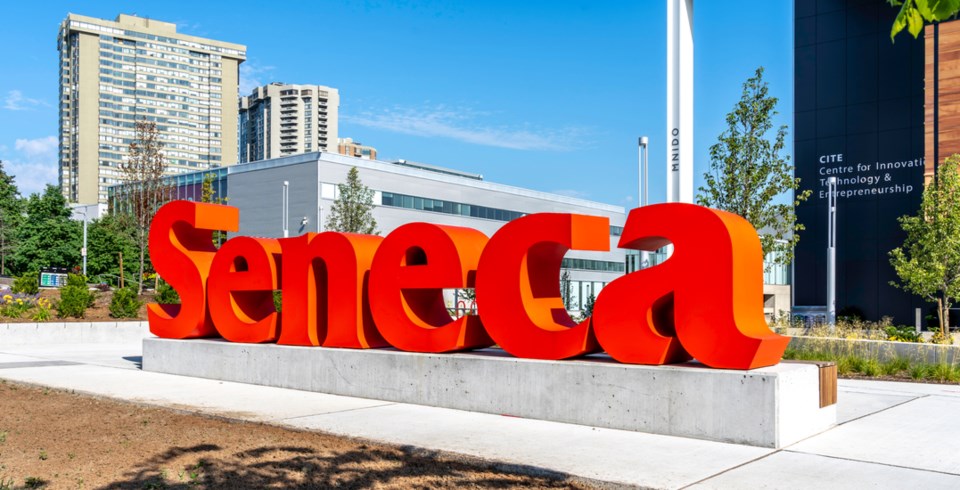College faculty could be hitting the bricks Friday right across Ontario, leaving their students with little need to hit the books.
Faculty at Ontario’s 24 public colleges — including Seneca College in York Region and Georgian College in Barrie — say they will strike at 12:01 a.m. on March 18 if the College Employer Council (CEC) doesn’t agree to voluntary binding interest arbitration.
A walkout would affect more than 240,000 students at Ontario colleges, along with some 16,000 college faculty members across the province. Faculty members voted 59 per cent in favour of a strike mandate in December.
Abby Lelievre, 20, is a second-year student taking Indigenous studies and documentary film-making at Barrie’s Georgian College campus, with online classes Monday to Thursday.
Lelievre said she doesn’t know what to expect.
“I don’t know whether my teachers are going to be on strike. I haven’t exactly been through a strike involving school before,” she said. “I’m just worried if this will upset my grades.”
She also has a job placement at the Georgian library, which could be affected by a strike.
Lelievre said she got a message Monday about a pending strike.
“They (Georgian College) sent an email, but it’s not fully decided yet,” she said of the work stoppage.
Ishaan Sachdeva, president of the Georgian College Students’ Association at its Barrie campus, said there are plans in place if a strike happens.
“What my conversation with Georgian has indicated is that even if a strike has to occur, we will implement academic recovery plans to make sure all the students have an opportunity to complete their semester,” he said. “And make sure they graduate.”
Students will also not be expected to complete any assignments for the duration of the strike.
“I’ve been in conversation with other (student) college presidents as well as to what we can do…to make sure our student voices are being heard,” Sachdeva said
But much could take place before 12:01 a.m. Friday.
“Nobody knows what’s going to happen yet. We might not go into a strike,” he said. “If there is a strike, we wouldn’t know how long it’s going to last.”
Sachdeva said about 30 per cent of Georgian’s student body has some form of in-person learning at the college — mentioning nursing students, firefighting students, medical students who are studying on campus and health and fitness program students.
The collective agreement involving full-time and partial-load professors, instructors, librarians and counsellors expired last Sept. 30.
Failed contract negotiations have led to the potential of college faculty labour action, such as a strike or work-to-rule.
Talks have been stalled for weeks between the CEC, which represents all of Ontario’s 24 public colleges in negotiating collective agreements, and the Ontario Public Service Employees Union (OPSEU).
The faculty’s bargaining team sent an open letter to college presidents Monday, calling on them to ensure students and their school year are protected.
"Faculty want to support students: we will not strike if you agree to binding interest arbitration," says the letter, which is signed by the seven-member college faculty bargaining team.
OPSEU says binding interest arbitration is frequently used in post-secondary education and other critical services. It involves both parties asking a neutral arbitrator to resolve a bargaining dispute as an alternative to a strike or lockout. Both sides provide proposals to the arbitrator, who in effect creates a compromise from the two proposals.
In the CEC’s response, also Monday, its choice is what’s called final offer selection arbitration, in which an arbitrator would choose between the union and the CEC offer, one or the other.
On March 4, 15 college student associations sent an open letter to the CEC, OPSEU and Ontario’s Ministry of Colleges and Universities.
It spoke of a fear that students would see a repeat of the 2017 strike, which left students feeling their year was rushed and incomplete, and that they were left unprepared for employment.
And there was disappointment that students would be caught in the middle of these negotiations, while the quality of their education and college experience suffers.
